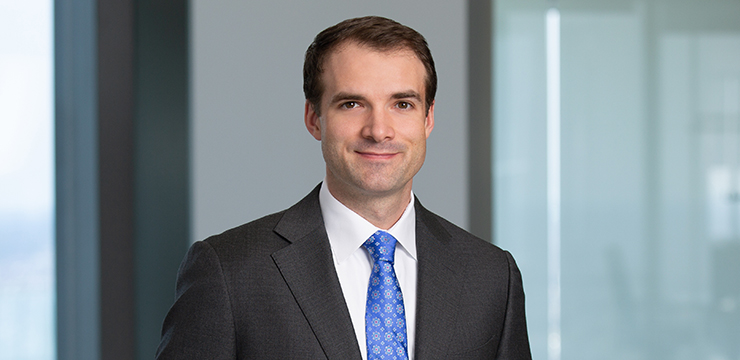
People
Search Results


Practice:
- Supreme Court and Appellate
- Antitrust & Competition
- State Attorneys General Investigations & Enforcement
- Strategic Advisory & Government Enforcement (SAGE)
Anisha Dasgupta Partner
New York
At the FTC, Anisha headed the 55-person Office of General Counsel, oversaw the FTC’s appellate litigation, defended regulatory decisions and enforcement actions in district court, and counseled Commissioners and other agency leaders. She litigated high profile anticompetitive conduct and merger cases, successfully arguing the FTC’s challenge to an $8 billion vertical merger in the biotech industry. She also supervised consumer protection work relating to advertising, artificial intelligence, data privacy, financial services, and marketing. She contributed to numerous significant rulemakings, including the 2025 Hart-Scott-Rodino (HSR) rule changes, 2025 Amendments to the Negative Option Rule, 2024 Rule on Unfair or Deceptive Fees, and 2023 Merger Guidelines.
Prior to her time at the FTC, Anisha served as Deputy Solicitor General at the Office of the New York State Attorney General and as an attorney on the Appellate Staff of the U.S. Department of Justice Civil Division.
As Deputy Solicitor General, Anisha handled some of New York’s most important appeals and provided legal guidance during trials and investigations. Her notable appellate arguments included groundbreaking antitrust, administrative law, statutory interpretation, and constitutional cases.
As an appellate attorney in the Civil Division, Anisha represented federal agencies in challenges to their statutes and regulatory actions. Her clients included the U.S. Departments of Commerce, Energy, Health and Human Services, State, Transportation, Treasury, and Veterans Affairs. During her tenure, she also served on detail to the White House Counsel's Office.
In addition to her first-chair appellate argument experience, Anisha has briefed hundreds of cases. She has handled numerous matters in the U.S. Supreme Court, every federal court of appeals, and New York’s state appellate courts.


Practice:
- Renewable Energy
- Energy & Infrastructure
Adrianne Davies Associate
Los Angeles
Her practice focuses on project finance transactions in the energy and infrastructure sectors, with a focus on renewable energy.


Practice:
- Antitrust & Competition
- Strategic Advisory & Government Enforcement (SAGE)
Allen Davis Senior Associate
Washington, D.C.
Allen assists businesses in identifying, assessing, and mitigating risks related to competition matters, collaborating closely with clients to develop tailored compliance strategies, guiding them through the complexities of antitrust laws at both domestic and international levels. He represents clients in a broad range of antitrust issues arising from mergers and acquisitions (including Hart-Scott-Rodino (HSR) filings and second requests), complex civil litigation, government investigations (including civil investigative demands (CID)) and general counseling. Allen represents clients across a diverse range of industries, including consumer technology, digital advertising, pharmaceuticals, e-commerce, real estate, and energy.
Recent notable experience includes representing:
- A software company in a successful defense of Clayton Act § 7 litigation
- A large insurer in connection with allegations of price fixing in violation of Sherman Act § 1
- A technology company in connection with discovery in a number of enforcement actions against Google LLC
- A generic pharmaceutical manufacture in defense against Sherman Act §§ 1-2 claims


Practice:
- Financial & Fintech Advisory
- Strategic Advisory & Government Enforcement (SAGE)
- Fintech
- Class Action Defense
- Complex Litigation & Dispute Resolution
- Government Investigations and Enforcement Actions
Sarah Davis Counsel
San Francisco
Sarah has particular expertise defending challenges to overdraft fees, including challenges to authorize positive, settle negative (“APSN”) transactions, and has represented Capital One, U.S. Bank, First Hawaiian Bank, and Union Bank in putative class actions challenging APSN fees. Separately, Sarah has defended two large national banks in enforcement actions related to overdraft fees and obtained a non-public resolution of voluntary remediation.
Sarah also has a robust practice defending both small and large companies against allegations of food mislabeling. She has successfully defended or reached favorable settlement terms regarding challenges to “all natural,” “no sugar added,” and “non-GMO” claims.


Practice:
- Energy & Infrastructure
- Renewable Energy
- Solar Energy
- Wind Energy
- Oil & Gas
Tyler Davis Senior Associate
Houston
Tyler advises energy industry sponsors, developers, issuers and investors in a broad range of financing matters, including construction financings, bridge loans, back leverage financings, and tax equity. Tyler's experience includes project financings and related corporate matters involving utility-scale solar, distributed solar, wind, hydroelectric power, and upstream and midstream oil and gas projects.

Will Davis Managing Associate
Los Angeles
Will’s clients include developers, investors, lenders and contractors engaged in transactions related to energy transition and infrastructure decarbonization projects across the U.S. Their experience includes diverse financing structures such as joint ventures, tax equity and cash equity investments, direct lending and mezzanine debt financing, as well as drafting and negotiating project development, equipment purchase and sale, and power purchase agreements.